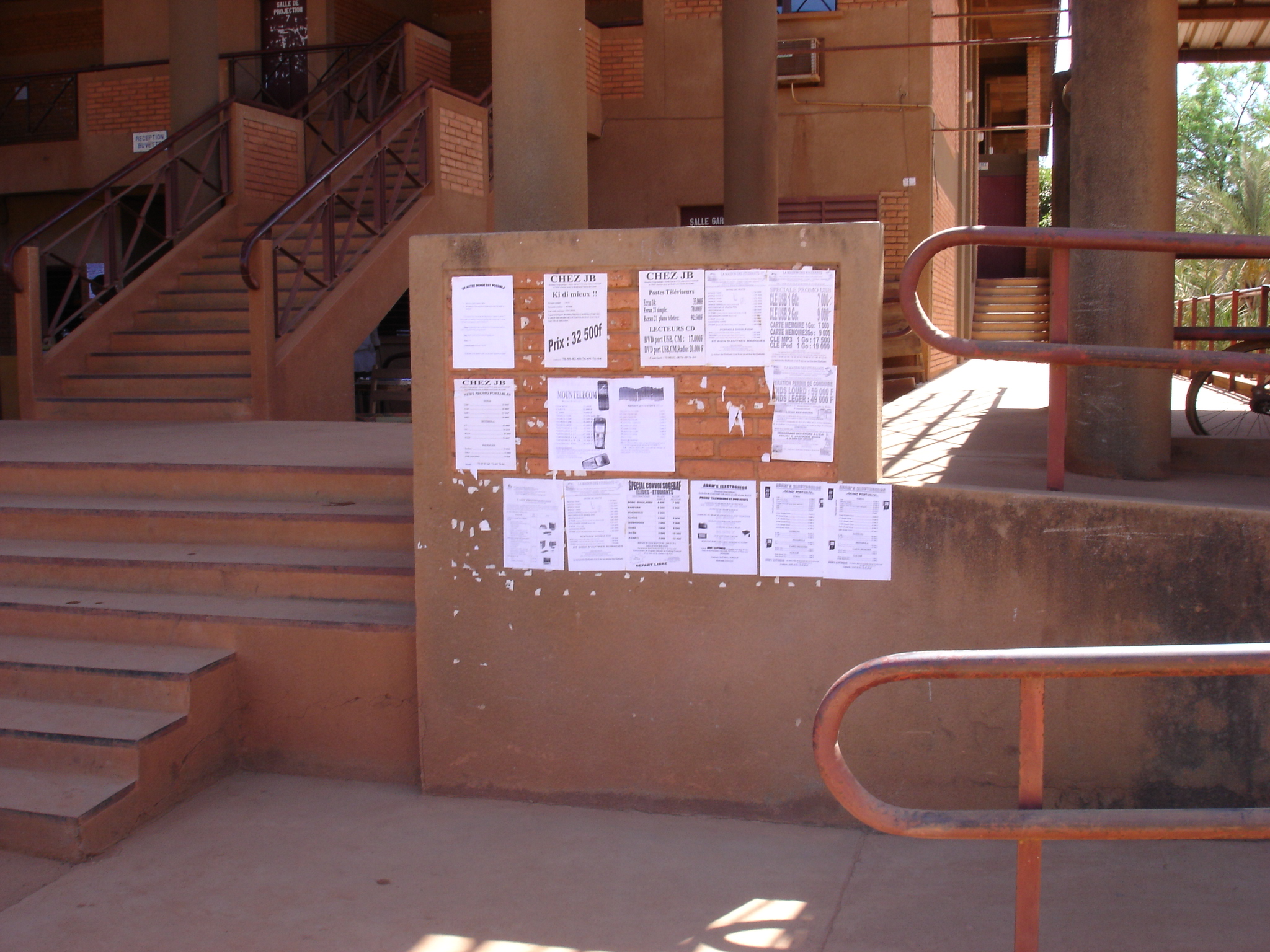The MDGs, adopted in 2000, call for universal primary education by 2015.
Joseph Pare, Minister of Higher Education, told IRIN that university enrolment in Burkina Faso has increased by 25 percent in 2007, in part because of more high school graduates. “There is now a strong trend of students making it though the secondary level, which creates infrastructural and human resource problems.”
In 2007 the main public university in the capital Ouagadougou had 400 professors for 40,000 students, according to the government.
The lack of teachers as well as inadequate classroom and research space led to student strikes in 2006 and 2007. The most recent ended in clashes with security forces.
Higher Education Minister Pare told IRIN the government has invested more than US$15 million to improve and adapt universities since 2005.
While reforms are underway, Pare said expensive temporary measures are the only way to accommodate the ever-growing student population. “Every year, we are forced to rent classroom space downtown at the cost of $784,000. And this is done with the country’s five-percent annual economic growth.”
Strikes spread
In December professors at the University of Ouagadougou and two smaller public universities, in Kodougou and Bobo Dioulasso, went on strike, demanding more government benefits.
“The entire system is crumbling,” said Magloire Somé, secretary general of the national teachers’ union known as Synadec. “No one is addressing the current problems of infrastructure, lack of teachers or students’ learning conditions.”
Union leaders met with Ministry of Education officials on 30 January to find a compromise to re-open the universities.
The government has agreed to pay $360 in back pay owed to each professor, but union leader Somé said “overburdened” teachers need more. “The education level will continue to decline because it is not possible for one teacher to oversee 100 students.”
Professors currently earn almost $300 per month after four years of teaching, according to the union.
Expenses grow
The government’s Pare told IRIN as the number of students has increased, so has financial need. He said the government offered $1 million in scholarships in 2008, increasing student loan and grant amounts to $400 and $300, respectively.
Union leaders are demanding $400 per professor in monthly housing subsidies, rejecting the government’s offer of $120. Teachers currently receive $110 per month for housing.
Minister Pare said the government is already paying $1.3 million per year in teacher benefits and that this amount can reach up to nearly $2 million in the case there are additional teachers who collect benefits.
But union leader Somé said without more attractive benefits, teachers will opt out of education to make ends meet. “Improved conditions [in public institutions] would lead to better-trained professors who would not need to look elsewhere in the private sector [for employment].”
University professors are scheduled to hold further talks with the government on 16 February. “We are fighting for better salaries and benefits to make the job more attractive so as to welcome more professors to fill the void left by those who retire,” said Somé.
Within the next five years, 120 professors will retire, according to the union Synadec.
Every year in Burkina Faso fewer than half of 50 university teaching vacancies are filled, forcing authorities to start recruiting from doctoral students to fill the widening gap.
bo/pt/np
This article was produced by IRIN News while it was part of the United Nations Office for the Coordination of Humanitarian Affairs. Please send queries on copyright or liability to the UN. For more information: https://shop.un.org/rights-permissions
